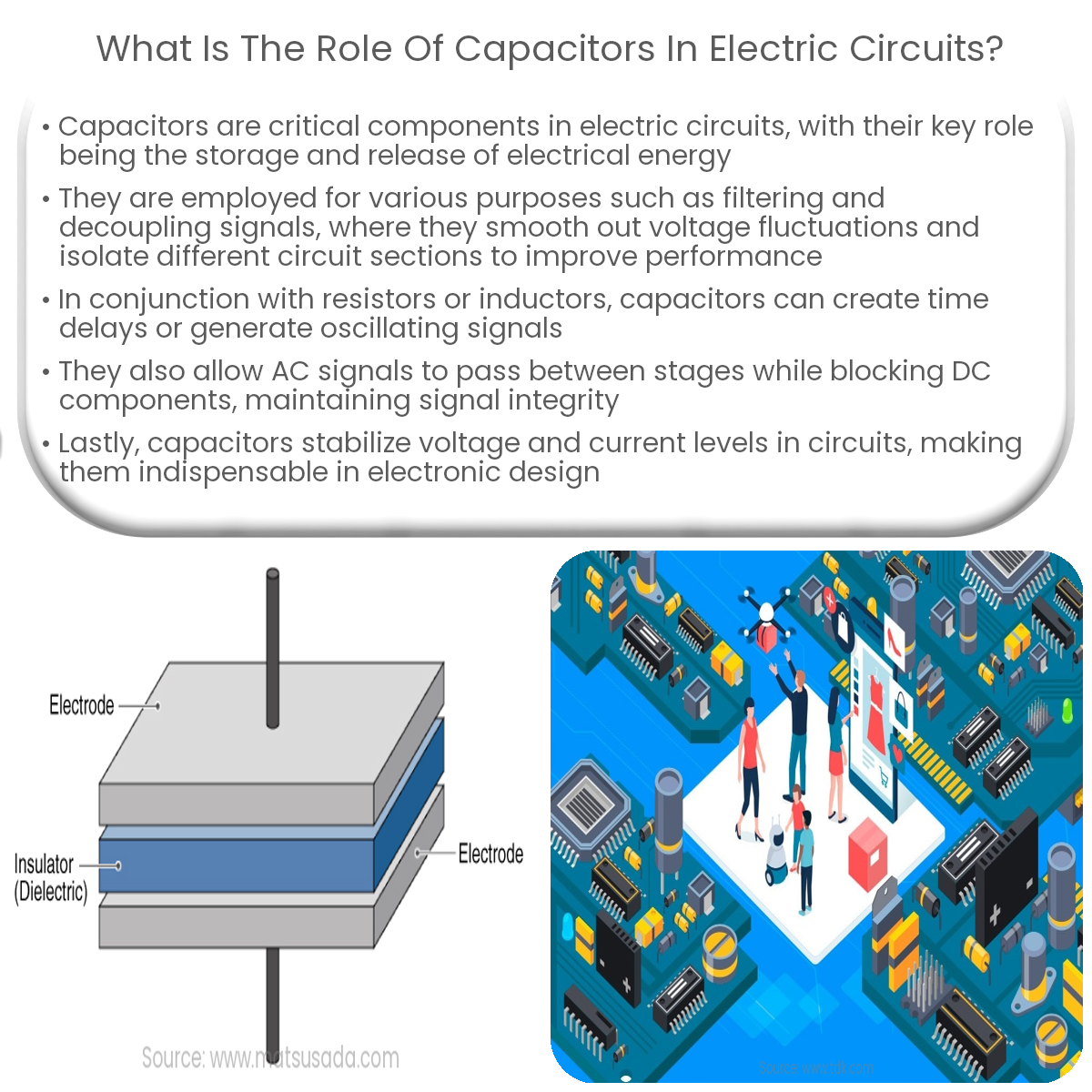Capacitors play a vital role in electric circuits by storing energy, filtering signals, creating timing functions, coupling/decoupling signals, and stabilizing voltage and current levels.
The Role of Capacitors in Electric Circuits
Capacitors are essential components in electrical and electronic circuits. They are passive devices that store and release electrical energy by accumulating charge on two conductive plates separated by an insulating material called a dielectric. This article will explore the vital roles that capacitors play in electric circuits.
Energy Storage
One of the primary functions of capacitors is to store electrical energy. When a voltage is applied across a capacitor, it accumulates charge on its plates, creating an electric field that stores energy. This stored energy can be released later when the voltage is removed, making capacitors useful in applications such as power supplies, energy storage systems, and backup power sources.
Filtering and Decoupling
Capacitors can be used to filter out specific frequencies in a circuit. In power supply circuits, capacitors are often employed to smooth out voltage fluctuations and reduce noise by filtering out high-frequency components. Additionally, capacitors can be used as decoupling devices in electronic circuits, isolating different sections of a circuit to prevent interference and improve performance.
Timing and Oscillation
In combination with resistors or inductors, capacitors can form RC (resistor-capacitor) or LC (inductor-capacitor) circuits that create time delays or generate oscillating signals. The time constant in an RC circuit is determined by the product of resistance and capacitance values. These circuits are commonly used in applications such as timers, oscillators, and waveform generators.
Signal Coupling and Decoupling
Capacitors can be used to couple or decouple signals between different stages of an electronic circuit. In coupling applications, capacitors allow AC (alternating current) signals to pass between stages while blocking DC (direct current) components, thus preventing unwanted DC shifts in the signal. In decoupling applications, capacitors help separate stages of a circuit to minimize interference and maintain signal integrity.
Voltage and Current Stabilization
Capacitors can help stabilize voltage and current levels in a circuit. They can store and release energy quickly, making them ideal for maintaining stable voltage levels in power supply circuits or buffering current spikes in high-speed digital circuits.
In conclusion, capacitors play a critical role in electric circuits by storing energy, filtering and decoupling signals, creating timing and oscillation functions, coupling and decoupling signals, and stabilizing voltage and current levels. Their wide range of applications and importance in circuit design make them an indispensable component in electronics.


